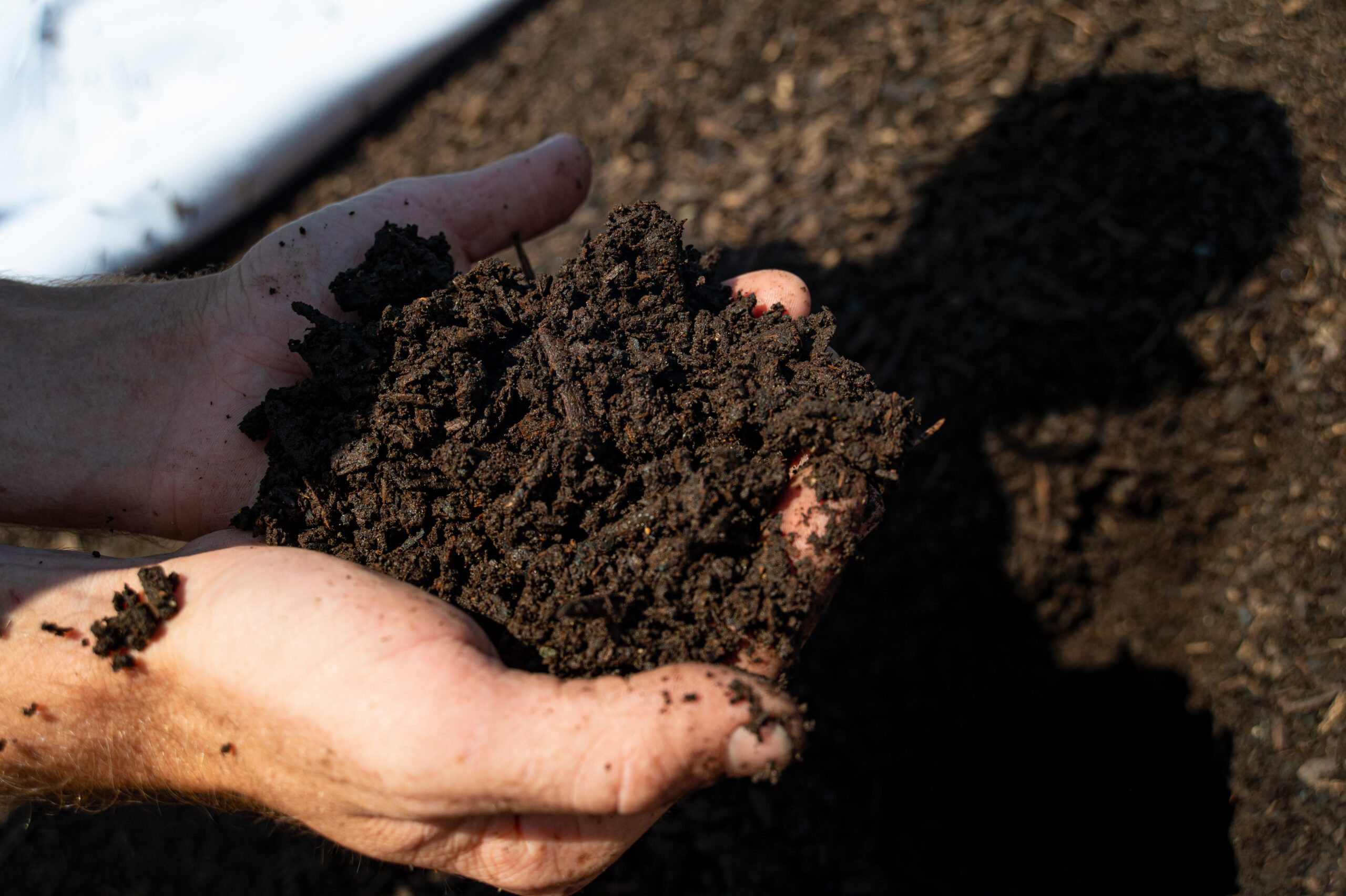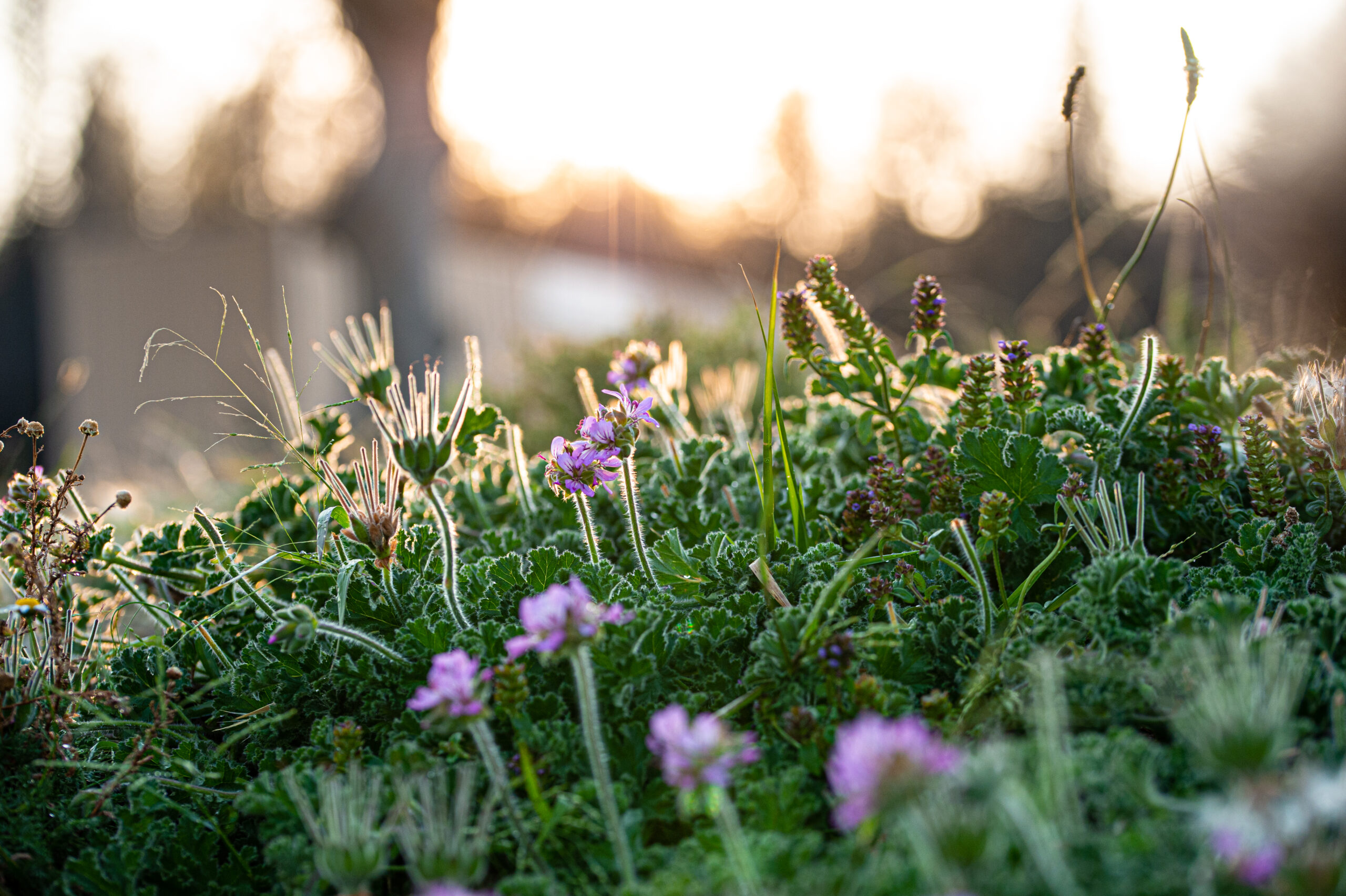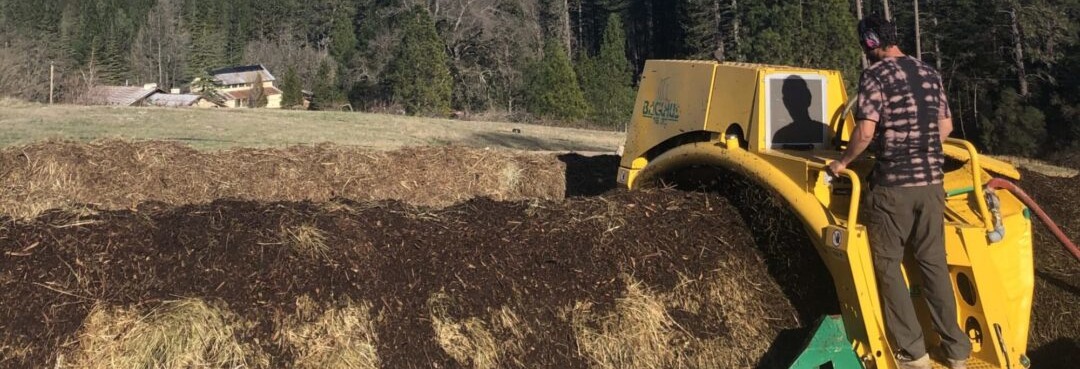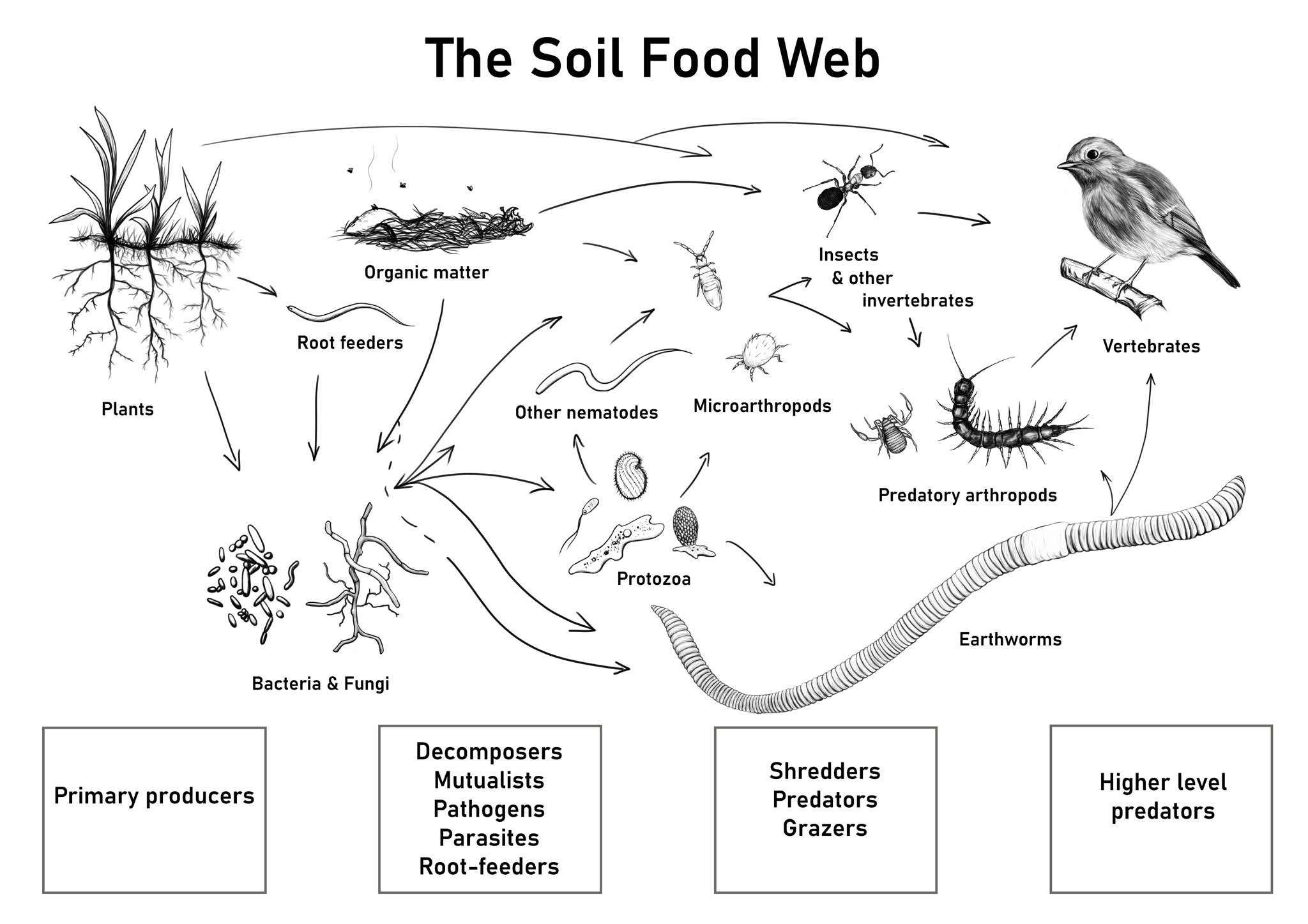
We create compost that focuses on building the complete soil food web.


We are thankful for the meaningful work that Dr. Elaine Ingham has done to make soil food knowledge understandable and accessible. She has pioneered research into the micro-organisms in the soil over the last 4 decades. Dr. Elaine works with research scientists to understand how they interact with each other and with plants.
Our ingredients are obsessively sourced with a focus on diversity.
Taking from what Dr. Elaine Ingham teaches, we know the importance of ensuring that our compost is a diverse, thriving mini-ecosystem. We work hard to check the balance and count how many bacteria and fungi are living in the soil. You just need to check our Instagram page to see all of the beautiful shots we get of the microbial life in the soil.
We grow input materials onsite.
We take care to incorporate and grow our materials on site. Even our fungal inoculant is collected from surfaces of organic materials.
Fungi colonize our piles of wood ships, and when we put the wood chips under the microscope, we see fungi, bacteria, protozoa, and nematodes. Our policy is to start compost with the organisms we want to grow and keep the conditions right for them to thrive. When we do that, we end up with rich biological material when we’re finished.

We also tend 15 acres of green, lush pastures. Our land is used solely for our green materials input. We treat our 15 acres with compost extract to build diversity. All of our wood chip inputs are treated with compost extract before being used for compost. The manure is sourced from local ranchers who raise their animals organically.
“Catalyst Bio-Amendments has been the most microbially active, diverse, and rich compost I have found to date.
They have certainly put me and my gardens on the fast track to sustainable, productive harvests.”
– Ahtifarms
Each windrow is routinely assessed with microscopes to ensure the highest quality product.
Not a single compost product gets shipped without us checking it with a microscope. We take samples regularly because we know how important it is to ensure that the soil web is balanced, alive, and well.
Great effort is made to maintain moisture levels in the compost, supporting the microbiome.
We make it a point to check our compost often and ensure that their temperatures and moisture levels are where they need to be. Sometimes the fix to a low moisture level is simply to add more water, but we check often to ensure that the moisture level is never too low.
We don’t use green waste, biosolids, or industry byproducts.
We are CDFA certified, and because we grow a large portion of our input materials onsite, we only choose premium ingredients for our compost. Our compost contains hay, manure, and wood chips. We obsessively source clean ingredients. We don’t accept public dumping or green waste. Our wood chips are sourced from forest clearing or from local wood-chipping companies we can speak to about the material’s origins.
We pay our producers to ensure each ingredient is treated with care as the resource it is.
We don’t cut corners – we want the most effective and thriving environment for our soil food web. We are passionate about the health of the microbiome, and it is important enough for us to compensate our producers fairly to ensure that they treat every ingredient with care and respect.

About The Soil Food Web
It can also be referred to as the soil biome. Just as humans have a gut biome responsible for digesting our foods, the soil has a biome that breaks down organic matter and releases nutrients in plant-available form.
Despite the damage that has been done to the soil food web by mankind in the last 100 or so years, we can restore the soil food web in as little as one growing cycle.
This is great news for farmers as well as the environment. Some farmers have seen their yields more than double since learning about the soil food web.
Farmers see higher yields, lower input costs, and improved disease resistance. What does this mean for your garden? High quality and tasty plants!

The soil food web is the living part of the soil made up of Microbes, Plants, Insects, Earthworms, Nematodes, Plants, Organic matter, Fungi, Bacteria, Protozoa, Arthropods, Animals
The main groups that make up the soil food web (or the major players) are Bacteria, Fungi, Protozoa, Nematodes, Micro-arthropods, Archea
